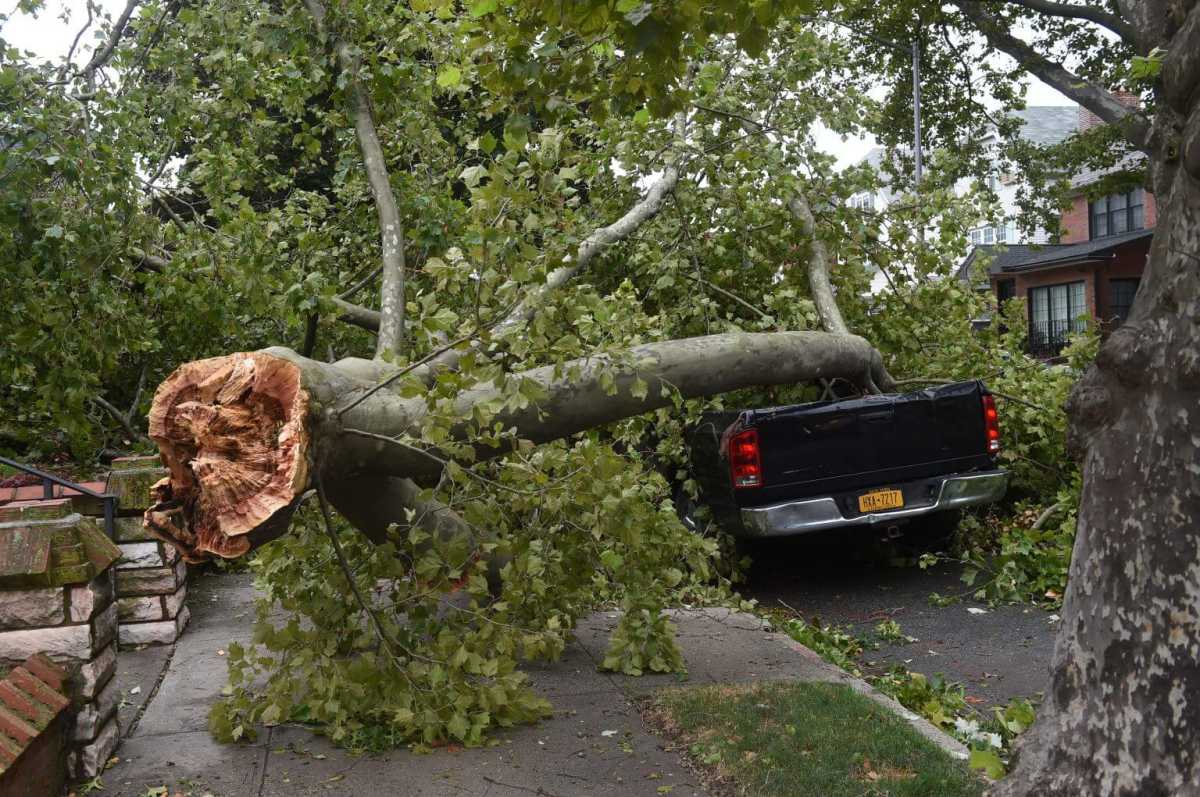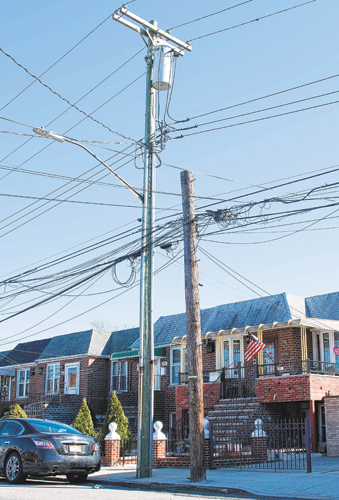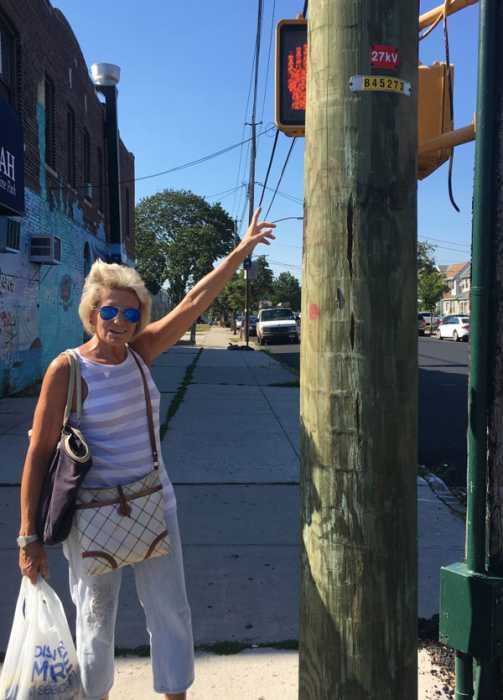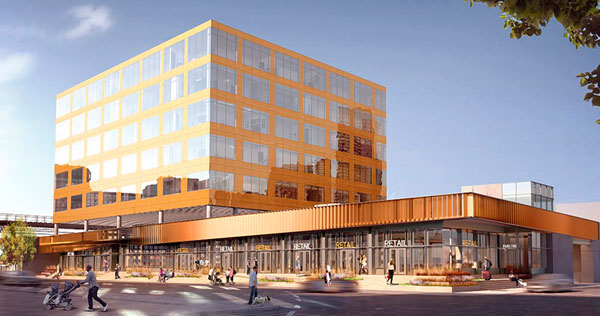More than 8,000 Brooklyn households are still in the dark after Tropical Storm Isaias blew through the borough on Tuesday, toppling thousands of trees and doing significant damage to southern Brooklyn’s antiquated power grid, according to Con Edison.
As of 11 am on Wednesday, approximately 8,200 Brooklyn households were still without power, after the outages peaked at over 20,000 on Aug. 4. The utility company said on Twitter it has worked to restore over 90,000 customers systemwide after the second-largest power outage in the company’s history following Hurricane Sandy.
However, Brooklyn is currently faring the best out of any borough outside of Manhattan, with 45,776 Queens customers still in the dark as of Wednesday morning and 22,884 Bronx households still without power. Meanwhile, the distant isle of Manhattan’s power grid remained mostly unscathed through the storm, with only 67 remaining outages reported around noon on Wednesday.
This is partly due to the widespread use of underground high-voltage power lines in Manhattan, which are also used in northern Brooklyn. The borough’s southern belt, however, is still reliant on overhead power lines, making its neighborhoods much more vulnerable to storm-related outages.
Southern Brooklyn legislators were quick to call out the disparities between their districts and Manhattan, where power was barely disturbed during the storm.
“I’m old enough to remember when 70,000 Manhattan residents lost power for five hours in July 2019 outage, which was national breaking news,” Coney Island Councilman Mark Treyger tweeted. “Over 200,000 outer-borough residents are without power in a pandemic and are told it will take days to restore. Hope things are well in Manhattan and Hamptons.”
Bay Ridge Councilman Justin Brannan pointed to the underfunding of the New York City Parks Department, which is responsible for the upkeep of street trees, thousands of which fell or had branches blown off that in turn toppled power lines.
“10,000 trees down. Would LOVE to know how many had been called into 311 for a concerned neighbor. I’d bet more than 50 percent,” Brannan said on Twitter. “Because [the Parks Department] has been underfunded for 20 years nothing CAN get done.”
Others renewed calls to strip the privately-operated utility of its massive responsibilities and turn power into a publicly-operated resource.
“After this disaster, it is unacceptable that our access to energy is left in the hands of Con Ed, a corporation that puts profit over access to power for working-class people,” said Sunset Park Democratic assembly nominee Marcela Mitaynes. “Energy is a basic human right. We need public power so that the next time disaster strikes, the working-class people of New York state can trust their right to access energy is protected.”
Discontented with the multi-day repair works, Park Slope Assemblyman Robert Carroll renewed his calls to disband the private entity’s control over power distribution in the state — a cause he has championed in the legislature’s lower chamber for several years.
“Private power utility companies are dishonest brokers that manipulate state and local politics for their own monetary gain and to the detriment of our environment and ratepayers,” he wrote on Twitter.
Newly-crowned Democratic nominee for central Brooklyn’s 25th State Senate district Jabari Brisport echoed those sentiments, saying that private utilities were too profit-driven to be trusted with control over utilities.
“ConEd consistently makes it as apparent as possible that regardless of the context, they prioritize profits over their workers, their clients, and their cities,” he tweeted. “Our energy needs to be treated like a public utility with democratic control. No more unnecessary 200k+ blackouts.”

























